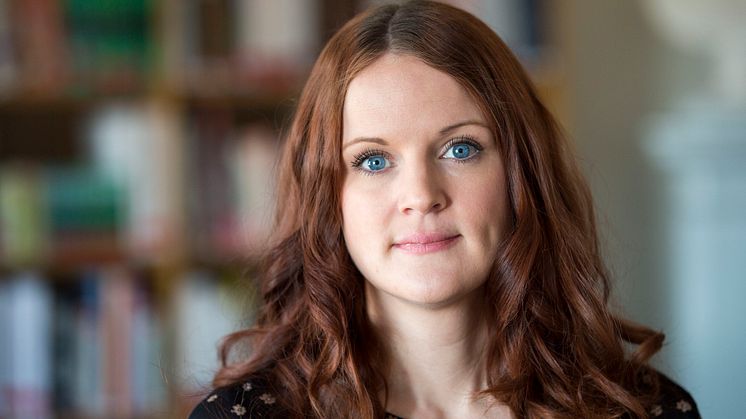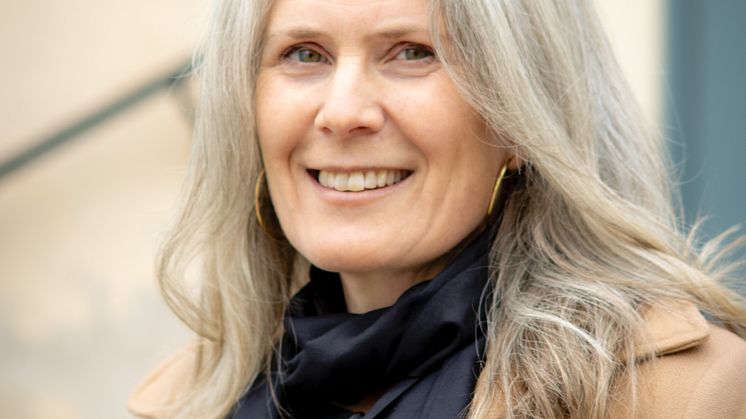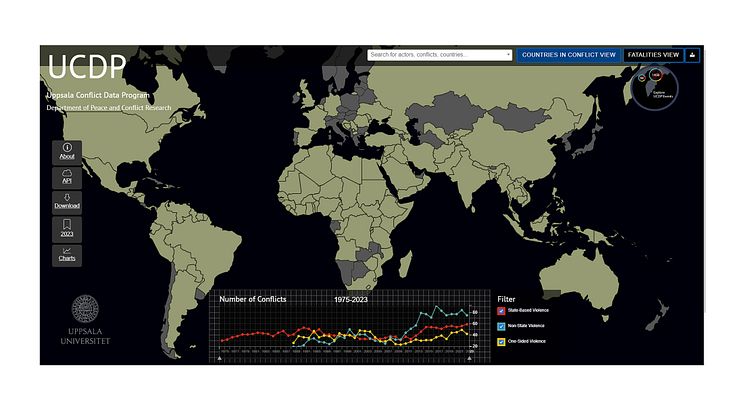Press release -
UCDP: Number of deaths in armed conflicts has doubled
At least 237,000 people died in organised violence in 2022. A new report from Uppsala Conflict Data Program (UCDP) at Uppsala University shows that this is a 97 per cent increase compared with the previous year, and the highest number since the Rwandan genocide in 1994.
“We see this increase despite considerable de-escalation in the two deadliest conflicts of 2021; Yemen and Afghanistan. Instead, violence in Ethiopia and Ukraine escalated drastically,” says Shawn Davies, Senior Analyst at UCDP.
Together, the wars in Ethiopia and Ukraine resulted in at least 180,000 battle-related deaths in 2022. This is a low estimate as information from these conflicts is scarce and subject to extensive propaganda. The numbers are likely to be significantly revised as more information becomes available. Even so, the data shows that more people died in those two conflicts in 2022 than in the whole world the year before.
“A common perception is that Russia’s war in Ukraine was the bloodiest conflict in 2022, but in fact, more people died in Ethiopia where the Tigray People's Liberation Front (TPLF) has fought the Ethiopian army, the latter supported by Eritrea, since late 2020,” says Davies.
In both Ethiopia and Ukraine, fighting has been characterised by trench warfare, with warring parties being accused of using human wave tactics. This type of warfare has contributed to the high casualty numbers.
The Russian invasion of Ukraine in February 2022 is the first large-scale interstate war in 20 years. Even if conflicts between states remain a relatively rare occurrence, they have increased in recent years.
“It has also become more common for external states to send troop support to rebel groups fighting against other governments, which essentially means that state armies are fighting each other,” says Therese Pettersson, Project Leader at UCDP.
The number of active conflicts in the world remains at a historically high level. UCDP registered 55 different conflicts where a state was involved on one or both sides during 2022. In contrast, between 31 and 39 such conflicts were registered yearly between 2000 and 2013, whilst the annual number has varied between 52 and 56 from 2015 onwards.
“Albeit most conflicts are small, the number of wars increased from five in 2021 to eight in 2022. Conflicts causing at least 1,000 battle-related deaths during one calendar year are considered wars,” Pettersson clarifies.
The number of non-state conflicts, where rebel groups or other armed organised actors fight each other, also remains on a record high level. UCDP registered 82 such conflicts in 2022. Nine of the ten deadliest non-state conflicts of the year occurred in Mexico where rival drug cartels have fought each other over turf since the 1980s. Gang-related violence has also escalated in Brazil, Haiti, Honduras and El Salvador in recent years.
Furthermore, so-called one-sided violence, where civilians are the target, increased in 2022. At least 11,800 civilians were killed in this type of intentional, targeted violence, carried out by 45 different states or organised groups. The actor killing most civilians in one-sided violence was the Islamic State (IS), but states also attacked civilians on a large scale in several conflicts. Russia and Eritrea both used extensive violence against civilians in the wars in Ukraine and Ethiopia.
The results presented in the press release will be published in the July issue of the Journal of Peace Research.
For more information, please contact:
Shawn Davies, Senior Analyst at UCDP, Department of Peace and Conflict Research at Uppsala University, shawn.davies@pcr.uu.se, 070 – 404 95 09
Therese Pettersson, Project Leader at UCDP, Department of Peace and Conflict Research at Uppsala University, therese.pettersson@pcr.uu.se, tel: 070 – 649 64 91
Magnus Öberg, Associate Professor, Department of Peace and Conflict Research at Uppsala University, magnus.oberg@pcr.uu.se, 070 – 167 90 86
About UCDP
The Uppsala Conflict Data Program (UCDP) is the world’s main provider of data on organised violence and the oldest ongoing data collection project for civil war, with a history of almost 40 years. Its definition of armed conflict has become the global standard of how conflicts are systematically defined and studied.
Related links
Topics
Categories
Founded in 1477, Uppsala University is the oldest university in Sweden. With more than 50,000 students and 7,500 employees in Uppsala and Visby, we are a broad university with research in social sciences, humanities, technology, natural sciences, medicine and pharmacology. Our mission is to conduct education and research of the highest quality and relevance to society on a long-term basis. Uppsala University is regularly ranked among the world’s top universities. www.uu.se




